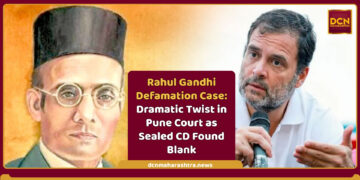Special Correspondent
Pune: In a significant judgment, the Additional Sessions Judge, B.P. Kshirsagar, has acquitted three men accused of strangling 65-year-old Sushila Shantaram Garade to death and robbing her of Rs. 15 lakh and gold ornaments in January 2017. The court found that the prosecution failed to provide conclusive evidence proving the accused’s involvement in the crime.
The accused individuals, Ashok Sonmal Rathod (26), Amol alias Sonya Raju Bhalerao (19), and Vikas Baban Shinde (24), were arrested in connection with the murder and robbery that took place in Sector 26, Nigdi Pradhikaran, Pimpri-Chinchwad. The incident created a significant stir in the local community. According to the prosecution, Garade, the wife of former Pimpri-Chinchwad Municipal Corporation engineer Shantaram Garade, was found murdered at her residence, with gold jewelry and cash reportedly stolen.
The case against the accused was largely based on circumstantial evidence. The prosecution claimed that Rathod, who worked as a driver and helper for Garade’s daughter, Vishakha, was involved in the crime. The prosecution also stated that the accused had strangled Sushila Garade to death between 4:45 and 5:45 p.m. on January 30, 2017, before stealing gold ornaments and cash from her home. After the crime, the Nigdi police arrested the three accused, seizing stolen items and a weapon used in the crime.
Despite the arrests, the judge pointed out that the prosecution had failed to prove the crucial aspects of the case beyond a reasonable doubt. The key issue was the absence of evidence that could place the accused at the scene of the crime. Furthermore, the CCTV footage from the crime scene was not sent for forensic analysis, which weakened the case against the accused. Additionally, critical testimonies, including that of Garade’s daughter, were not recorded.
The court’s decision emphasized that in cases based on circumstantial evidence, the responsibility to establish facts beyond reasonable doubt lies with the prosecution. If the evidence chain is broken or unconvincing, the accused are entitled to the benefit of the doubt.
This case highlights the importance of concrete evidence in criminal trials, especially in cases reliant on circumstantial evidence. While the three accused were acquitted due to insufficient evidence, the court’s ruling raises questions about the effectiveness of the investigation and prosecution in securing justice.
















